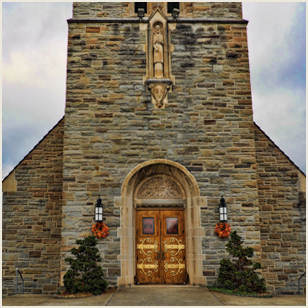Page: Quotes, Prayer (how), Quote Author, Quote Topic, Teresa of Avila (1515-1582)
It is well to seek greater solitude so as to make room for the Lord and allow His Majesty to do His own work in us. The most we should do is occasionally, and quite gently, to utter a single word, like a person giving a little puff to a candle, when he sees it has almost gone out, so as to make it burn again; though, if it were fully alight, I suppose the only result of blowing it would be to put it out. I think the puff should be a gentle one because, if we begin to tax our brains by making up long speeches, the will may become active again.
— Saint Teresa of Avila (1515-1582)
Page: Quotes, Quote Topic, Repentance
Let those of us who have been worsted by a bodily passion not be negligent in repenting and feeling sorrow for ourselves for the sorrow of judgment ever test us.
–Abba Moses (330-405) a Desert Father
Page: Quotes, Prayer (how), Prayer (why), Quote Topic
Consistently pray in all things, so that you might not do anything without the help of God … Whoever does or busies himself with anything without prayer does not succeed in the end. Concerning this, the Lord said: ‘Without Me you can’t do anything.‘ (John 15:5)
–Saint Mark the Ascetic (Fifth Century)
Humility, Page: Quotes, Quote Topic, Repentance
Repentance raises the fallen, mourning knocks at the gate of Heaven, and holy humility opens it.
–Saint John Climacus (c.525-606)
Page: Quotes, Prayer (how), Prayer (what), Quote Topic
Do not say, after spending a long time in prayer, that nothing has been gained; for you have already gained something. And what higher good is there than to cling to the Lord and persevere in unceasing union with Him?
–Saint John Climacus (c. 525-606)
Gregory the Great (c. 540-604), Page: Quotes, Quote Author, Quote Topic, Spiritual (life)
There are in truth three states of the converted: the beginning, the middle, and the perfection. In the beginning they experience the charms of sweetness; in the middle the contests of temptation; and in the end the fullness of perfection.
–Saint Gregory the Great (c.540-604)

